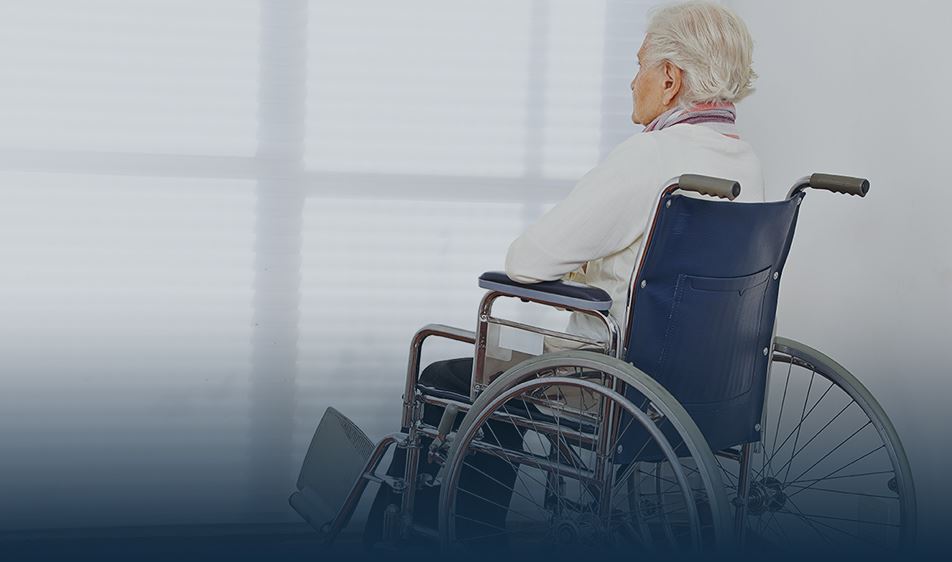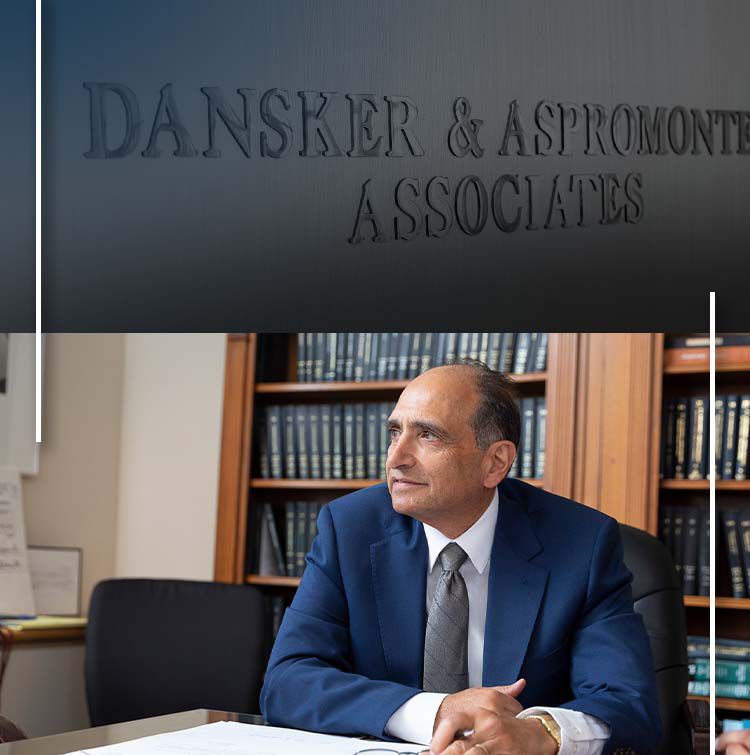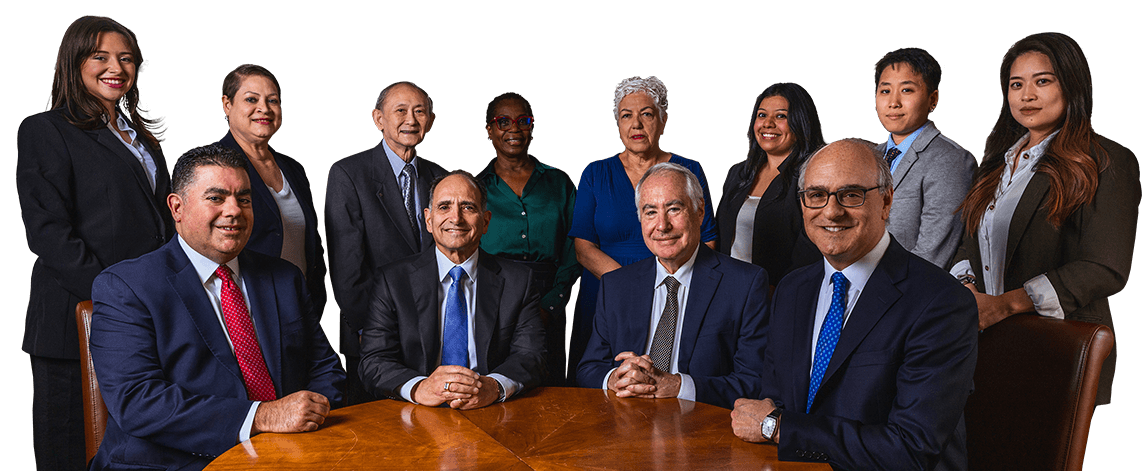Nursing Home Abuse
Over Half a Billion Recovered
Dansker & Aspromonte Associates LLP Are Experienced & Successful New York Serious Injury Lawyers with Results Exceeding $750 Million

$31 Million
See More Case Results

Trusted New York Nursing Home Abuse Attorney for Victims of Neglect
When we place our loved ones in nursing homes, we expect the staff members to provide for their needs and protect them from harm. All too often, however, nursing homes and their employees fail to provide for the basic needs of their residents. If your loved one suffered injuries while a resident of a nursing home in New York, they may qualify for compensation.
Dansker & Aspromonte Associates LLP passionately advocates for neglected and abused nursing home residents. We understand how difficult it is to learn your loved one has suffered in this way, and we are prepared to help.
For a free legal consultation with a nursing home abuse lawyer in New York, contact us by calling (212) 732-2929.
Potential Recoverable Losses in a Nursing Home Abuse Case
If your loved one suffered physical or emotional harm as a result of injuries or illnesses caused by the negligence of the nursing home or due to abuse , our injury lawyers can seek fair compensation for the damages they suffered. A recovery may apply for both economic and non-economic losses, as well as losses that extend into your loved one’s future.
Potential losses may include:
- Pain and suffering
- Transportation to and from doctor’s appointments
- Medical expenses, including surgery, emergency room visits, medication, doctor’s visits, and more
- Mental anguish
- Loss of quality of life
If your loved one’s injuries require ongoing care, you may also be able to recover expenses for this. Long-term medical expenses may include, but is not limited to:
- Psychological rehabilitation
- Physical therapy
- Speech therapy
- Cognitive rehabilitation
- Orthopedic treatment
We take pride in giving our clients the personalized attention they deserve. When we calculate your damages, we will carefully evaluate the full extent of the harm your loved one experienced.
Wrongful Death
If the injuries or abuse suffered at the nursing home leads to the loss of your loved one, we can help you seek wrongful death damages. We may be able to do this through an insurance claim and a lawsuit.
Wrongful death damages can help pay for:
- Your loved one’s pain and suffering before their passing
- Your loved one’s medical bills resulting from their abuse-related injuries
- Burial and funeral expenses
- Loss of guidance and support
You and your family deserve to grieve in peace. Let us handle the legal process when coping with your loved one’s loss.
Types of Nursing Home Cases We Handle
Nursing home negligence case can come in many forms, and family members can protect their loved ones by being aware of the ways neglect and abuse can happen.
Physical Abuse
In some instances, aggressive or poor treatment of the residents constitutes physical abuse. These actions can include hitting, beating, burning, or pinching the resident. Physical abuse often leaves tell-tale signs, such as markings, bruises, and scars.
Neglect
Whether intentional or unintentional, neglect can be just as harmful as outright abuse. Nursing home neglect includes a failure to aid the resident with daily activities, including:
- Going to the bathroom
- Feeding the resident
- Helping the resident with personal hygiene
- Adjusting a bed-bound resident’s positioning
- Providing water to the resident
In the event of a death due to negligent security, loved ones may be entitled to recover additional damages in a wrongful death claim, including:
- Funeral expenses
- Loss of spousal and parental guidance Loss of household benefits
- Burial/cremation costs
- Loss of income
Sexual Abuse
A nursing home patient may experience sexual abuse from a caretaker, another resident, or a visitor to the facility. Sexual abuse involves any form of unwanted sexual conduct, including touching and kissing. A resident who struggles with dementia may have difficulty reporting that they have experienced abuse.
Recover Your Life
Let Us Fight For You Free & Confidential Consultation
Unfortunately, based on your query, we are unable to assist you at this time. Our firm specializes in serious accidents and negligence cases, such as car accidents, slips and falls, construction accidents, and other accidents that require hospitalization or ongoing treatment.
How We Can Help
Contact us online or call (212) 732-2929. If we agree to accept your case, you will not be required to pay us any money upfront. We only earn a legal fee if your loved one recovers compensation.
If the Nursing Home’s Requirements Are Not Met, You Can Sue for Negligence
By both federal and state law, nursing homes are required to provide their residents with adequate care and protect them from abuse. Some of the requirements nursing homes are obligated to fulfill include:
- Following a resident’s prescribed nutritional plan, which may include cutting food into smaller pieces
- Administering prescribed medications according to doctor’s orders
- Maintaining a safe and clean premise, free from any clutter that could cause a resident to fall
- Assisting the resident with daily activities, such as going to the bathroom, eating, and engaging in recreational activities
- Preventing the resident from wandering off the premises
- Reducing the spread of infection
If a nursing home fails to adhere to these requirements, it puts its residents at risk of suffering injuries and illnesses. Many residents already struggle with medical conditions. Vulnerable nursing home residents cannot afford to suffer any further complications that could worsen an existing injury or illness.
Understaffing
One of the most prevalent factors leading to nursing home neglect in New York is understaffing, according to Health Service Insights. When nursing homes cut corners and fail to hire an adequate number of staff members, there are simply not enough people on hand to properly care for the residents.
This can lead to moving-impaired residents lying in bed for long periods before being adjusted, which can lead to bedsores. It can lead to a fall if a resident attempts to go to the bathroom without the assistance of a caretaker. It can also make it easier for a resident to wander off the premises, as there may not be enough staff members to keep an eye on the entrances and exits.
Understaffing is never an excuse for overworked nursing home caretakers to vent their frustrations on a resident. If a caretaker feels exhausted or frustrated, they may abuse or neglect a resident. If this happened to your loved one, you do not have to let the negligent parties get away with it. We can help you hold them liable.
Let Dansker & Aspromonte Associates LLP Handle Your Case
We have a great deal of experience with nursing home negligence and abuse cases, and we welcome your inquiries and questions about these matters. Learn about working with a nursing home negligence and abuse attorney during a free consultation.
Trust our experienced team to handle your car accident or injury claim.
We have helped clients obtain justice and compensation in a variety of personal injury cases, such as car accidents, construction accidents, wrongful death, and severe injuries.
Stay in the Know
Read Our Nursing Home Blog

Handle Your Case With Confidence
We serve clients throughout the New York City Metropolitan area, including Manhattan, Brooklyn, the Bronx, Queens, Staten Island,
and Nassau and Suffolk Counties. Contact us for help today.





